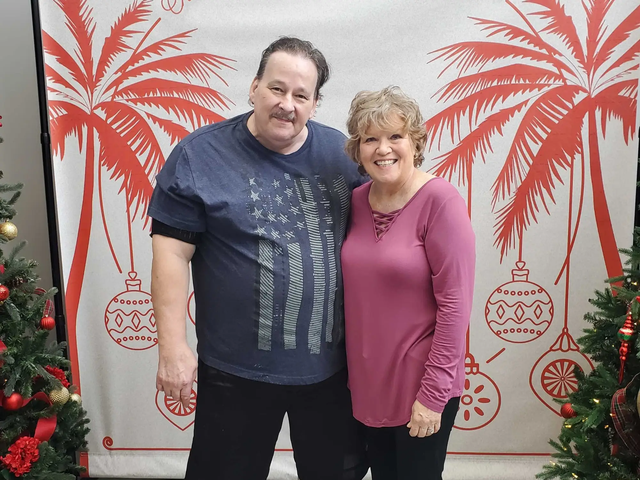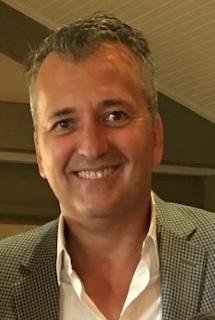
Noah Sheidlower
Aug. 29, 2024
Wendy Jones, 71, has been her husband Roy's caregiver for the past three decades — even after her brain-tumor diagnosis. But the couple, who live in Palm Beach County, Florida, are running low on cash and are worried about how they'll put food on the table.
Jones, who worked as a paralegal for decades, stopped working in the mid-2000s after being diagnosed with a brain tumor. Her husband was permanently disabled in a workplace accident in 1992. Even though both get Social Security payments, their savings have fallen over the years as they've paid thousands of dollars out of pocket in medical expenses, even with insurance, according to financial documents viewed by Business Insider.

Wendy Jones says she and her husband are just scraping by, given their medical costs. Wendy Jones
Jones is one of millions of older Americans with health issues who are relying on Social Security to get by. Dozens of older Americans have told BI in recent months that they must continue working to supplement their Social Security and pensions, though it's difficult for Jones and many others to hold a job given their medical conditions.
Jones, who works part time, said she and her husband resorted to buying only frozen food and getting a reverse mortgage loan. Still, she's fearful that one more emergency medical expense could put them into the red.
Breadwinner of the family
Jones grew up in Fort Lauderdale, Florida, with three siblings, and she had a "very happy, normal, healthy upbringing," she said. She became a civil trial paralegal in West Palm Beach, married, and had four children.
Her husband worked as a mechanic and liked to hunt in his free time. Jones said they were both very active and healthy for the first two decades of their careers.
In 1992, however, Roy was injured in a workplace accident and then got into a car crash. He was left permanently disabled and wasn't able to return to work, receiving income from Social Security Disability Insurance. He had multiple major surgeries and took various medications, some of which they paid for out of pocket.
Jones was the sole breadwinner of the family, and her employer was accommodating when she needed to tend to her husband, she said. She received bonus payments, one of which she used for a down payment on a new home. She said she made between $70,000 and $90,000 a year, including bonuses, in the 1990s and early 2000s.
Still, she and her husband were worried about making ends meet. She said they always had food when her children were teenagers, but there were times when they would resort to ramen noodles or mac and cheese.
Once her children were in college or moved out of the house, she felt better about her and her husband's finances, she said, adding that their 401(k)s, insurance, mortgage, and other financial components were "very secure." Her children now range from 43 to 51 years old, and three went to college on full-ride scholarships or with help from their grandparents.
"They all went off on their own, got married, went to college, and so we thought things would get slower and easier for us," Jones said. "The way things worked out, that didn't happen."
A devastating diagnosis
In the mid-2000s, Jones started having vision and concentration problems. She would sometimes pass out at her desk or blank out for minutes at a time. She was diagnosed with a brain tumor, but she said the cost of the insurance co-payments wasn't a "horrible burden." Eleven months after her first surgery, however, she got agonizing migraines again that felt like "a sword going through my head," and she had to take more medication.
After three years of working on and off between medical appointments, she was forced to leave her job and went on disability. She said she was lucky to get approved on her first attempt, though it typically takes six to eight months for an initial decision after months of collecting all the paperwork.
"Somehow, I thought it would be the same as what I was making, but it was two-thirds of the income, so a huge cut there," Jones said. "The insurance didn't cover so much, so that's when I had to start eating into my savings. The 401(k) went really quickly. I have really good health insurance, but nothing covers everything, apparently."
She also waited two years after being approved for SSDI before she became eligible for Medicare, meaning she had to pay $500 a month out of pocket for one medication. She spent hours on the phone trying to get affordable insulin for her husband, who has diabetes, and the attorneys at her previous firm helped her secure additional assistance. They had to declare bankruptcy during this period.
"If I wasn't educated and didn't speak English, I couldn't imagine ever getting any of this assistance," Jones said. "I struggle with the forms and applications. I don't know how people do that. People my age often don't know how to use a computer."
She said preparing for unexpected medical costs from the various forms of cancer she'd been diagnosed with over the past two decades had been perhaps the most difficult aspect of their finances. Recently, she's had multiple ambulance bills charging her as much as $900 with insurance.
Recently, they got a letter saying their Medicare premiums weren't being covered by the state of Florida anymore. Jones suspects it's because she put money her mom gave her before she died into a savings account to pay for their home and car for this year. Though she gets $2,200 a month in Social Security, and her husband gets about $1,000, they're forced to buy frozen entrées and vegetables, as cooking is a challenge, and they can't afford meat. They also cut back to one car to save money.
Just scraping by
Though their credit is good now, Jones said a few years ago, she would get calls from bill collectors many times daily. She and her husband live much leaner now than a few years ago.
Despite everything, they were able to keep their "very tiny" house, though the cost of living in Palm Beach has risen fast over the past few years. They got a reverse mortgage loan, which lets older homeowners access some of their home's equity for tax-free payments. Jones said it was their only option to cling onto their house — she estimated their mortgage would have been $1,500 to $2,000 a month. They haven't been able to afford to fix their sprinkler system, and when they had a pipe burst, they shelled out nearly $1,200.
She said it was "horrendous" having to pay her car insurance, property tax, and homeowners insurance in the same month. Their homeowner's insurance is $4,000 yearly, their property tax is nearly $2,000, and their car insurance is $1,900.
"People have suggested we move, but we have lived here 35 years," Jones said. "Besides emotional and social support, moving is very expensive."
Jones works a minimum-wage, part-time job at a bird clinic — one of the few jobs she could do given her medical conditions. She gets at most $300 a month, which she said was handy. She knows if she quits her job, she will qualify for extra assistance, but she said she would rather work for her money — and get discounts on food for her birds at home.
"It's a catch-22: People say, just get a job, but I tried that, and everything else was taken away from me," Jones said, adding that she would work as long as she could drive, walk, and answer phones. "I didn't get ahead. I wasn't able to save or progress in any way whatsoever."
Her children have helped her fund vacations, allowing her to attend a memorial service for her mother in the Outer Banks or travel to Alaska. Her children give them financial advice and frequently check in on them.
Jones said she was taking one day at a time, especially because her oncologist gave her a worrisome update at her last appointment. She said her goal going forward was to make sure her husband was taken care of, as he was dealing with depression and pain.
"I'm trying to find a way that we can live comfortably without making somebody else uncomfortable," Jones said.
Subscribe to Business Insider's Financial Insights Newsletter
This Business Insider article was legally licensed by AdvisorStream


